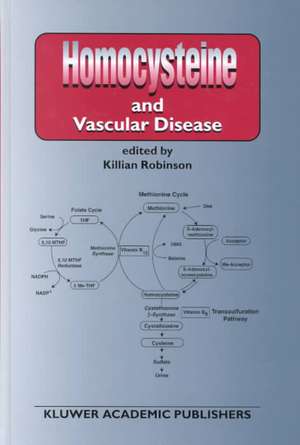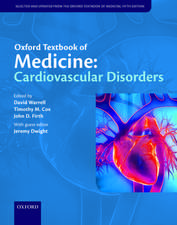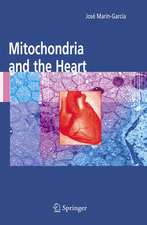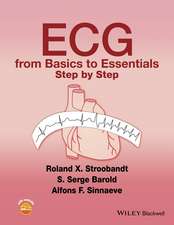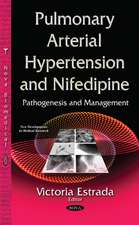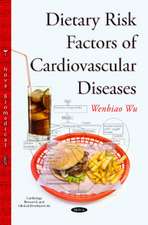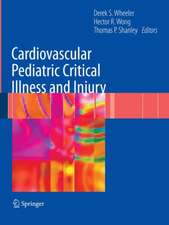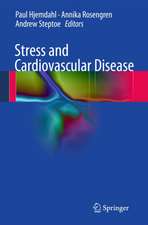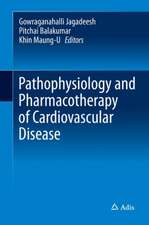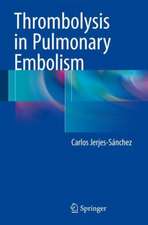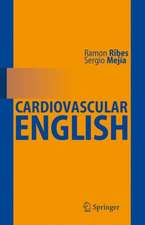Homocysteine and Vascular Disease: Developments in Cardiovascular Medicine, cartea 230
Editat de K. Robinsonen Limba Engleză Hardback – 30 apr 2000
| Toate formatele și edițiile | Preț | Express |
|---|---|---|
| Paperback (1) | 1419.03 lei 6-8 săpt. | |
| SPRINGER NETHERLANDS – 4 dec 2010 | 1419.03 lei 6-8 săpt. | |
| Hardback (1) | 1426.71 lei 6-8 săpt. | |
| SPRINGER NETHERLANDS – 30 apr 2000 | 1426.71 lei 6-8 săpt. |
Din seria Developments in Cardiovascular Medicine
- 5%
 Preț: 1484.50 lei
Preț: 1484.50 lei - 5%
 Preț: 375.17 lei
Preț: 375.17 lei - 5%
 Preț: 354.10 lei
Preț: 354.10 lei - 5%
 Preț: 1419.03 lei
Preț: 1419.03 lei - 5%
 Preț: 376.43 lei
Preț: 376.43 lei - 5%
 Preț: 1098.27 lei
Preț: 1098.27 lei - 5%
 Preț: 1438.38 lei
Preț: 1438.38 lei - 5%
 Preț: 376.78 lei
Preț: 376.78 lei - 5%
 Preț: 368.37 lei
Preț: 368.37 lei - 5%
 Preț: 380.25 lei
Preț: 380.25 lei - 5%
 Preț: 2117.58 lei
Preț: 2117.58 lei - 5%
 Preț: 367.28 lei
Preț: 367.28 lei - 5%
 Preț: 366.56 lei
Preț: 366.56 lei - 5%
 Preț: 371.10 lei
Preț: 371.10 lei - 5%
 Preț: 370.94 lei
Preț: 370.94 lei - 5%
 Preț: 783.18 lei
Preț: 783.18 lei - 5%
 Preț: 713.18 lei
Preț: 713.18 lei - 5%
 Preț: 1098.27 lei
Preț: 1098.27 lei - 5%
 Preț: 375.49 lei
Preț: 375.49 lei - 5%
 Preț: 373.47 lei
Preț: 373.47 lei - 5%
 Preț: 723.93 lei
Preț: 723.93 lei - 5%
 Preț: 1104.13 lei
Preț: 1104.13 lei - 5%
 Preț: 2117.20 lei
Preț: 2117.20 lei - 5%
 Preț: 716.09 lei
Preț: 716.09 lei - 5%
 Preț: 372.03 lei
Preț: 372.03 lei - 5%
 Preț: 722.33 lei
Preț: 722.33 lei - 5%
 Preț: 660.07 lei
Preț: 660.07 lei - 5%
 Preț: 375.34 lei
Preț: 375.34 lei - 5%
 Preț: 1423.22 lei
Preț: 1423.22 lei - 5%
 Preț: 715.35 lei
Preț: 715.35 lei - 5%
 Preț: 790.69 lei
Preț: 790.69 lei - 5%
 Preț: 720.68 lei
Preț: 720.68 lei - 5%
 Preț: 3185.49 lei
Preț: 3185.49 lei - 5%
 Preț: 1418.27 lei
Preț: 1418.27 lei - 5%
 Preț: 784.64 lei
Preț: 784.64 lei - 5%
 Preț: 714.63 lei
Preț: 714.63 lei - 5%
 Preț: 370.74 lei
Preț: 370.74 lei - 5%
 Preț: 376.22 lei
Preț: 376.22 lei - 5%
 Preț: 660.85 lei
Preț: 660.85 lei - 5%
 Preț: 368.37 lei
Preț: 368.37 lei
Preț: 1426.71 lei
Preț vechi: 1501.79 lei
-5% Nou
Puncte Express: 2140
Preț estimativ în valută:
273.07€ • 284.01$ • 228.83£
273.07€ • 284.01$ • 228.83£
Carte tipărită la comandă
Livrare economică 13-27 martie
Preluare comenzi: 021 569.72.76
Specificații
ISBN-13: 9780792362487
ISBN-10: 0792362489
Pagini: 448
Ilustrații: XX, 448 p.
Dimensiuni: 155 x 235 x 27 mm
Greutate: 0.84 kg
Ediția:2000
Editura: SPRINGER NETHERLANDS
Colecția Springer
Seria Developments in Cardiovascular Medicine
Locul publicării:Dordrecht, Netherlands
ISBN-10: 0792362489
Pagini: 448
Ilustrații: XX, 448 p.
Dimensiuni: 155 x 235 x 27 mm
Greutate: 0.84 kg
Ediția:2000
Editura: SPRINGER NETHERLANDS
Colecția Springer
Seria Developments in Cardiovascular Medicine
Locul publicării:Dordrecht, Netherlands
Public țintă
ResearchCuprins
1. Introduction.- 2. Historical Aspects of the Relationship Between Homocysteine and Vascular Disease.- 3. Biochemistry and Metabolism Donald.- 4. Reference Ranges for Homocysteine Concentrations.- 5. Determinants of Plasma Homocysteine.- 6. Epidemiology of Homocysteine Levels and Relation to Vitamins.- 7. Vascular Pathology of Hyperhomocysteinemia.- 8. Vascular Complications of Homocystinuria: Incidence, Clinical Pattern and Treatment.- 9. Homocysteine as a Risk Factor for Peripheral Vascular Disease.- 10. Homocysteine as a Risk Factor for Cerebrovascular Disease and Stroke.- 11. Homocysteine as a Risk Factor for Coronary Artery Disease.- 12. Homocysteine and Family History of Coronary Artery Disease.- 13. Homocysteine as a Risk Factor for Cardiovascular Disease in Women.- 14. Homocysteine and Venous Thrombosis.- 15. Homocysteine and Renal Disease.- 16. Molecular Biology of Methylenetetrahydrofolate Reductase (MTHFR): Interrelationships with Folic Acid, Homocysteine and Vascular Disease.- 17. Molecular Biology of Methionine Synthase: Interrelationships with Homocysteine and Vascular Disease.- 18. Molecular Biology of Cystathionine ß-Synthase: Interrelationships with Homocysteine, Pyridoxine, and Vascular Disease Warren.- 19. Homocysteine and Cholesterol: Basic and Clinical Interactions.- 20. Homocysteine and Coagulation Factors: Basic Interactions and Clinical Studies.- 21. Homocysteine and Endothelial Dysfunction.- 22. The Treatment of High Homocysteine Concentrations in Homocystinuria: Biochemical Control in Patients and their Vascular Outcome.- 23. An overview of the homocysteine lowering clinical trials.- 24. Summary and Future Directions for Epidemiological, Preventive and Basic Research.
Recenzii
`The book is therefore a great reference for an up-to-date review of any one of the many pathways involved in homocysteine metabolism. The editor should be applauded for bringing together some of the leaders in the field of homocysteine research and thus compiling a comprehensive review that should be on the shelf of any scientist working in the area of homocysteine.'
Clinical Chemistry, 47:6 (2001)
Clinical Chemistry, 47:6 (2001)
